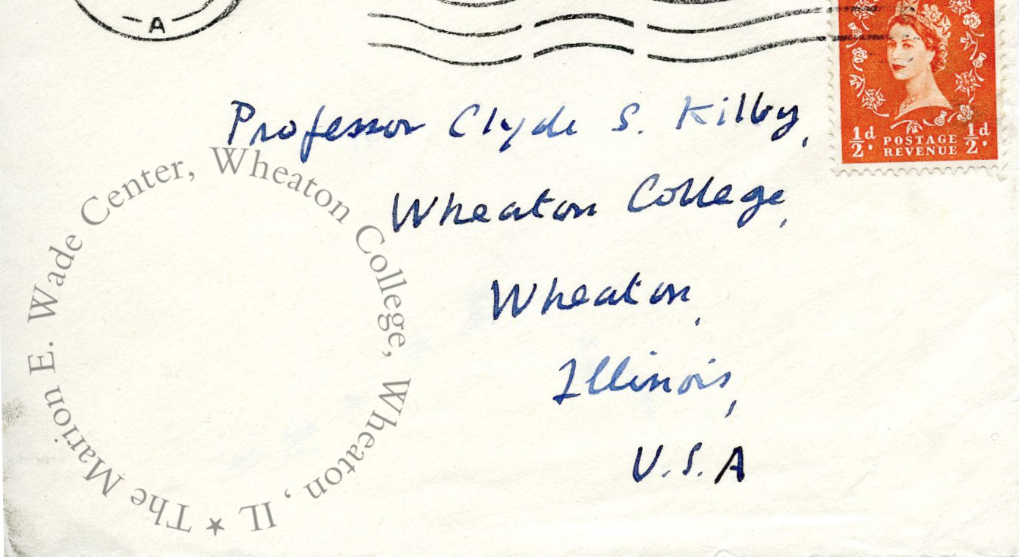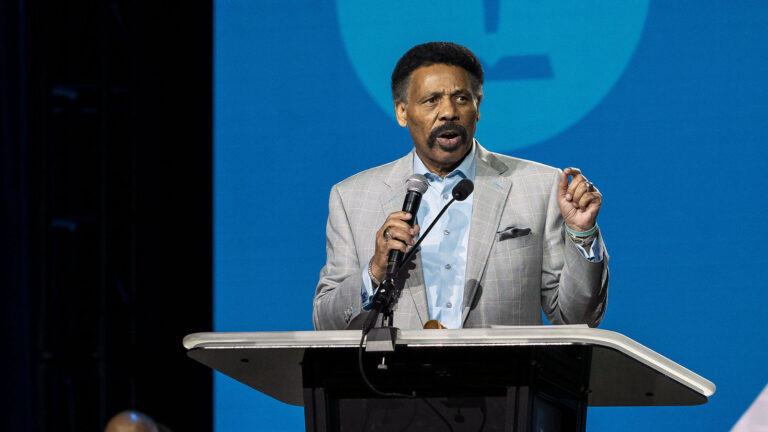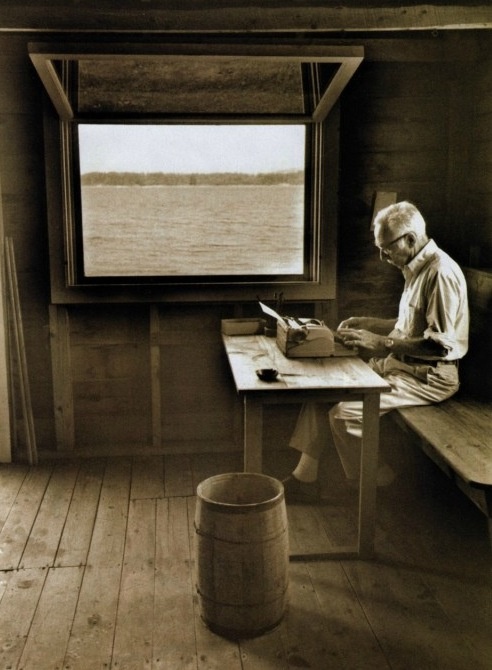“The Weekend Wanderer” is a weekly curated selection of news, stories, resources, and media on the intersection of faith and culture for you to explore through your weekend. Wander through these links however you like and in any order you like. Disclaimer: I do not necessarily agree with all the views expressed within these articles but have found them thought-provoking.

“The Man Who Introduced American Evangelicals to C. S. Lewis” – Justin Taylor at The Gospel Coalition: “Clyde S. Kilby joined the faculty of Wheaton College in 1935 at the age of 33 as an assistant professor of English and dean of men. In 1943 Kilby read a new book published by C. S. Lewis, entitled The Case for Christianity, which changed the course of his life. It was based on two series of broadcast talks Lewis had given for the BBC and was later published as the first two sections of Mere Christianity. ‘I . . . read it right through feeling almost from the first sentence that something profound had touched my mind and heart.’ It was like discovering ‘something bottomless,’ and he was captivated by ‘the depth and freshness of his observations and the permanency of his expression.’ Kilby went on to read Lewis’s whole corpus as it was being published. Nearly a decade later, in December of 1952, Kilby—now chair of the English department at Wheaton—wrote Lewis asking if they could meet when he was in England during the summer of 1953. The two men spent an hour together at Lewis’s rooms in Magdalen College, Oxford, discussing sixteenth-century literature, art, and the Renaissance. Kilby wrote of the conversation: ‘in all his talk there is an incipient good humor and genuineness that makes a conversation with him a real pleasure.'”

“Church ‘Homelessness’ Must Not Be Grieved Too Quickly” – Russell Moore in “Moore to the Point” at Christianity Today: “In his New York Times column this week, my friend David French wrote about what it was like to be ‘canceled’ by his denomination, the Presbyterian Church in America. He later told me how stunned he was by how many people responded immediately—grieving their own ‘cancellations’ from churches or ministries they’d loved and served. I was not surprised at all. Most people, of course, aren’t canceled in the way we typically use that word, but in a way more like the situation described by the late Will Campbell. He wasn’t ‘fired’ by the National Council of Churches, he would joke. They just unleashed a swarm of bees in his office every day until he voluntarily left. Similarly, many people who feel ‘homeless’ these days aren’t told by their home churches or traditions, ‘Get out!’ Instead, they face a quieter form of exile. They face those they love, who expect them to conform to new rules of belonging. Sometimes, that’s to some totalizing political loyalty. Sometimes, it’s to a willingness to ‘get over’ their opposition to whatever their church or ministry leaders now deem to be acceptable sins. Sometimes, this doesn’t even happen to these people in their own churches but in their larger theological or denominational homes, or vice versa. It’s confusing. It’s disorienting. It’s sometimes angering. What it really is, though, is grief.”

“Genius and virtue: Wildcat is less a biopic than a luminous exploration of the tension in Flannery O’Connor’s artistic and spiritual life” – Kathryn Reklis in The Christian Century: “‘I don’t want your praise; I don’t want you to think I am clever,’ Flannery O’Connor (Maya Hawke) says to the priest (Liam Neeson) who has come to offer her counsel and comfort. She is wracked with pain from lupus, forced to move from New York City back to her mother’s home in Georgia, and railing against the limitations of her new life. She and the priest have been discussing whether ‘scandalous writing’ can serve God. She has been carrying on a philosophical argument largely with herself, using the priest as her foil. Then she sits up violently and practically spits out the words, ‘But I do want it!’ Wildcat (directed by Ethan Hawke) is less a biopic than a luminous exploration of the tension between ambition and virtue and the power of constraint as an artistic discipline. We meet O’Connor as a young writer in New York City, trying to pitch her unfinished novel Wise Blood to an editor who wants her to rein in her prickly, often scathing style. ‘I don’t think you need to make [your readers] suffer in order to introduce them to the unusual way your mind works,’ he says pointedly. O’Connor refuses to revise her novel into a more acceptable form. She knows her style is also its substance, an unflinching attempt to see reality without sentimentality. She also believes, in her heart of hearts, that it might represent her genius.”

“Tony Evans says he is ‘stepping away’ from leading Dallas megachurch due to ‘sin’” – at Religion News Service: “Tony Evans, the longtime leader of a Dallas megachurch and bestselling author, has announced that he is stepping back from his ministry due to ‘sin’ he committed years ago. ‘The foundation of our ministry has always been our commitment to the Word of God as the absolute supreme standard of truth to which we are to conform our lives,’ Evans said in a Sunday (June 9) statement to his Oak Cliff Bible Fellowship church that was posted on its website. ‘When we fall short of that standard due to sin, we are required to repent and restore our relationship with God. A number of years ago, I fell short of that standard. I am, therefore, required to apply the same biblical standard of repentance and restoration to myself that I have applied to others.’ Evans, 74, was not specific about his actions but said they were not criminal.”

“The Attention Cottage” – Alan Jacobs at The Homebound Symphony: “In the last few days I have come across, or had sent to me, anguished cries from people who have recently been dragged on social media and cannot fathom the injustice of it, and I find myself thinking: You haven’t figured this out yet? You complain about your words being taken out of context when you post them in an environment whose entire structure — as we have all known for fifteen years now — demands context collapse? How many more times do you plan to smack your head against that unyielding wall?
I wrote recently about some things that everyone knows, and here are two more things that everyone knows:
- Our attentional commons is borked, it’s FUBAR; it’s not stunned or pining for the fjords, it has ceased to be, it is bereft of life, it is an ex-commons.
- The death of the attentional commons has had dramatic and sometimes tragic consequences for every individual’s store of attentiveness.
What I want to argue today is that the attentional commons cannot be rebuilt unless and until we rebuild private and local/communal spaces of attentiveness.”

“Spirituality Among Americans” – From Pew Research Center: “In recent decades, Americans have become less likely to identify with an organized religion. Yet a new Pew Research Center survey shows that belief in spirits or a spiritual realm beyond this world is widespread, even among those who don’t consider themselves religious. The survey finds that:
- 83% of all U.S. adults believe people have a soul or spirit in addition to their physical body.
- 81% say there is something spiritual beyond the natural world, even if we cannot see it.
- 74% say there are some things that science cannot possibly explain.
- 45% say they have had a sudden feeling of connection with something from beyond this world.
- 38% say they have had a strong feeling that someone who has passed away was communicating with them from beyond this world.
- 30% say they have personally encountered a spirit or unseen spiritual force.
Overall, 70% of U.S. adults can be considered “spiritual” in some way, because they think of themselves as spiritual people or say spirituality is very important in their lives.
Music: Adam, “River on Fire,” from Dig